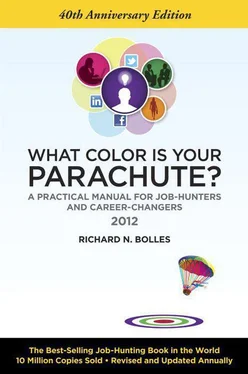“I asked to speak to a former client or clients. You would have thought I asked to speak to Elvis. The counselor stammered and stuttered and gave me a million excuses why I couldn’t talk to some of these ‘satisfied’ former clients. None of the excuses sounded legitimate to me. We went back and forth for about thirty minutes. Finally, he excused himself and went to speak to his boss, the owner. The next thing I knew I was called into the owner’s office for a more ‘personal’ sales pitch. We spoke for about forty-five minutes as he tried to convince me to use his service. When I told him I was not ready to sign up, he became angry and asked my counselor why I had been put before ‘the committee’ if I wasn’t ready to commit? The counselor claimed I had given a verbal commitment at our last meeting. The owner then turned to me and said I seemed to have a problem making a decision and that he did not want to do business with me. I was shocked. They had turned the whole story around to make it look like it was my fault. I felt humiliated. In retrospect, the whole process felt like dealing with a used car salesman. They used pressure tactics and intimidation to try to get what they wanted. As you have probably gathered, more than anything else this experience made me angry.”
If you are dealing with a career counseling firm, and you ask what is the cost of their services, and they reply that it is a lump sum that must all be paid “up front” before you start or shortly after you start, all at once or in rapid installments,
(Give them 300 bad points)
We’re talking about firms here, not the average individual counselor or coach. The basic problem with firms is that both “the good guys” and “the crooks” do this. The good guys operate on the theory that if you give them a large sum up front, you will then be really committed to the program. The crooks operate on the theory that if you give them a large sum up front, they don’t have to give you anything back, except endless excuses and subterfuge, after a certain date ( quickly reached ).
And the trouble is that there is absolutely no way for you to distinguish crook from good guy, at first impression; they only reveal their true nature after they’ve got all your money. And by that time, you have no legal way to get it back, no matter what they verbally promised. [47]
Let me repeat: with firms that make you sign a contract and pay basically up front, there is no way to distinguish the good guys from the crooks. The only safe counseling is one with no contract, and you just pay for each hour, as you use it .
I have tried for years to think of some way around this dilemma, to be fair to the good guys, but there just is none. So if you decide to pay up front, be sure it is money you can afford to lose .
If Money Is a Problem for You: Hourly Coaching
Most career coaches or counselors charge by the hour. You pay only for each hour as you use it, according to their set rate. Each time you keep an appointment, you pay them at the end of that hour for their help, according to that rate. Period. Finis. You never owe them any money (unless you made an appointment, and failed to keep it). You can stop seeing them at any time, if you feel you are not getting the help you wish. The fee will probably range from $40 an hour on up to $200 an hour or more. It varies greatly . Counselors in cities tend to charge more than counselors out in the countryside.
That fee is for individual time with the career coach or counselor. If you can’t afford that fee, ask whether they also run groups. If they do, the fee will be much less. And, in one of those delightful ironies of life, since you get a chance to listen to problems that other job-hunters in your group are having, the group will often give you more help than an individual session with a counselor would have. Not always; but often. It’s always ironic when cheaper and more helpful go hand in hand.
If the career counselor in question does offer groups, there should (again) never be a contract. The charge should be payable at the end of each session, and you should be able to drop out at any time, without further cost, if you decide you are not getting the help you want.
There are some career counselors who run free (or almost free) job-hunting workshops through local churches, synagogues, chambers of commerce, community colleges, adult education programs, and the like, as their community service, or pro bono work (as it is technically called). I have had reports of workshops from a number of places in the U.S. and Canada. They exist in other parts of the world as well. If money is a problem for you, in getting help with your job-hunt, ask around to see if workshops exist in your community. Your chamber of commerce will know, or your church or synagogue.
As I mentioned earlier, you can find an incredibly useful list of all the job support groups in the U.S. compiled by Susan Joyce, on her site Job-Hunt.org: http://tinyurl.com/7a9xbb.
If Your Location Is a Problem for You: Distance-Coaching or Telephone-Counseling
The assumption, from the beginning, was that career counseling would always take place face to face. Both of you, counselor and job-hunter, together in the same room. Just like career counseling’s close relatives: marriage counseling, or even AA.
Of course, a job-hunter might—on occasion—phone his or her counselor the day before an interview, to get some last-minute tips or to answer some questions that a prospective interviewer might ask, tomorrow .
What is different, today, is that in some cases, career counseling is being conducted exclusively over the phone from start to finish. Some counselors now report that they haven’t laid eyes on over 90 percent of their clients, and wouldn’t know them if they bumped into them on a street corner. I call this “distance-coaching” or “telephone-counseling.”
With the invention of the Internet, with the invention of Internet telephoning , we are witnessing “the death of distance”—that is to say, the death of distance as an obstacle. The world, as the wonderful New York Times columnist Thomas Friedman has famously written, is in effect flat .
An increasing number of counselors or executive coaches are doing this distance-counseling . [48]I’ll bet we see this increase, geometrically, now that Microsoft has bought Skype, and we are going to have video counseling at our disposal in many shapes and forms.
This increasing availability of “distance-counseling” is good news, and bad news.
Why good news? Well, in the old days you might be a job-hunter in some remote village, with a population of only eighty-five, back in the hills somewhere, or you might be living somewhere in France or in China, miles from any career counselor or coach, and so, be totally out of luck. Now, these days you can be anywhere in the world, but as long as you have the Internet on your desk, you can still connect with the best distance-counseling there is.
And the bad news?
Well, just because a counselor or coach does distance-counseling or phone-counseling, doesn’t mean they are really good at doing it. Some are superb; but some are not. So, you’re still going to have to research any distance-counselor very carefully.
It is altogether too easy for a counselor to get sloppy doing distance-counseling—for example, browsing the newspapers while you are telling some long personal story, etc., to which they are giving only the briefest attention. (Of course, the increasingly wider use of video calling programs such as Skype may cure that!) To avoid any kind of sloppiness, you and the counselor need discipline. Experienced distance-counselors, such as Joel Garfinkle, [49]insist on forms being used, both before and after each phone session. With his permission, I have adapted his forms, and print them here. And, P.S., they are equally useful for normal, face-to-face counseling, as well .
Читать дальше












